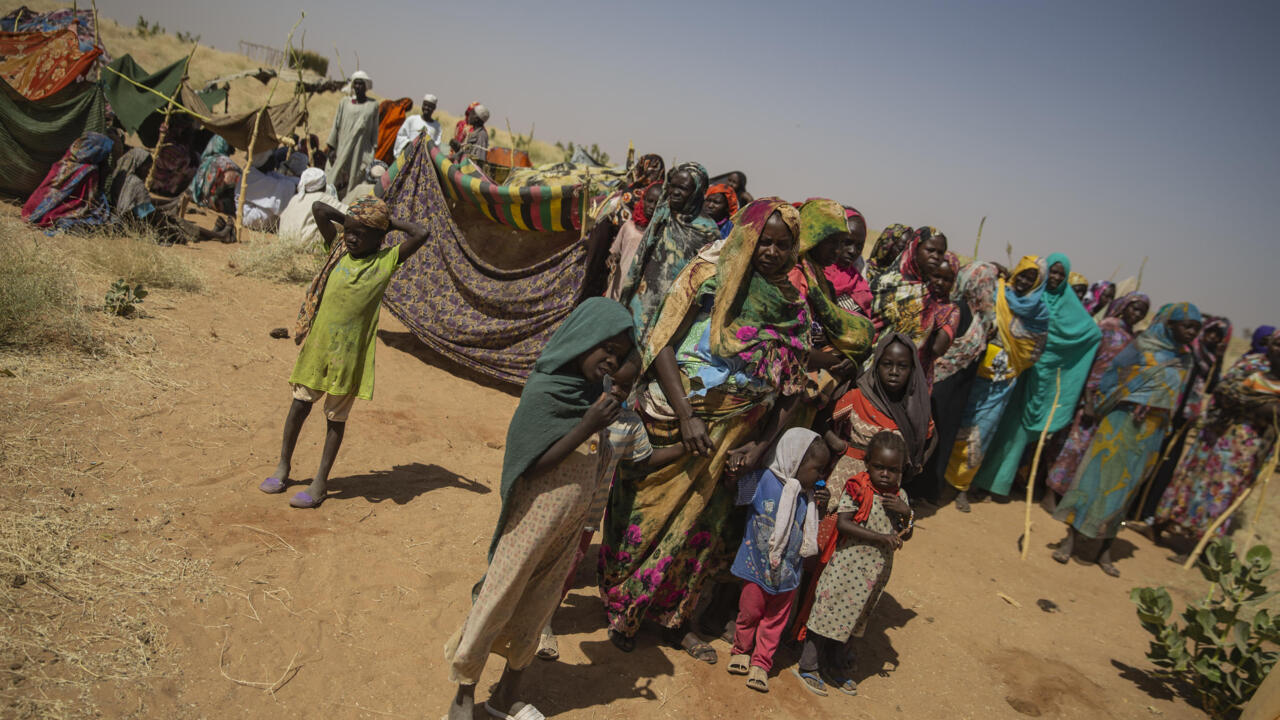Despite the revolution, Darfur is still in crisis
Residents of the village of Fallouja which was attacked on January 19.
These people fled and took refuge in the Chedad camp, where people already displaced from previous attacks are living.
© Abdulmonam Eassa / RFI
Text by: Sébastien Nemeth Follow
5 mins
The Sudanese revolution has not changed the situation in Darfur.
This region in western Sudan has been in the throes of civil war since 2003. Experts say more than 300,000 have died.
Former ousted President Omar al-Bashir, detained in Khartoum since his fall in 2019, is accused of war crimes and genocide by the International Criminal Court.
Transitional power is in place, but the region remains very unstable.
Publicity
Read more
From our special correspondent in Darfur
One of the main divides today in Darfur is the ethnic divide.
Since the 1970s, Arab tribes have arrived in this region, notably following repeated droughts.
This population movement has resulted in pressure on resources and tribal conflicts.
Then in 2003, the power of Omar al-Bashir precisely relied on these Arabs to attack the original Darfuri populations.
A bloody war ensued which resulted in the president being charged with genocide and war crimes.
Even today, tension is high, especially between farmers and nomadic Arabs.
The former reproach the latter for invading their land.
Just a few days ago, hundreds of members of the Berti clan demonstrated outside the town of El Fasher.
Abdelaziz Shumo Abderahman, one of the protesters, explains that “
nomadic Arabs fed their camels on a private farm.
The farmer came to get them to leave and they stabbed him.
After the murder, they left their animals and fled.
The state until now tries to take back the criminal.
For the moment, we are in negotiations.
"
Villages attacked
In addition to this conflict over resources, Darfur continues to experience violence as in the days of the civil war.
Villages are regularly attacked.
Residents of many localities are targeted and flee their homes.
Each time, they accuse the Janjaweed, these Arab militias used by Omar al-Bashir to perpetrate the genocide.
On January 19, the village of Fallujah was attacked.
Its inhabitants fled.
Hamad Tijane Abdelkader, one of the survivors, says he saw “
the Janjaweed with vehicles, weapons, camels, horses.
They attacked the village, I myself hid in a hole that I dug in the ground.
I stayed in it for two days.
I counted more than 15 dead.
After getting out, around 5 a.m., I ran away.
There is no peace, the government allows these people who kill right to left.
"
The peace he talks about is the one that was signed in August 2020 with Darfuri rebels.
A trompe-l'oeil peace.
The armed movements that signed were not the most powerful and did not really control any territory.
Then, violence, particularly of a tribal nature, continued.
Many Darfuris therefore feel that nothing has changed for them.
Departure of UNAMID
The security situation is all the more fragile as UNAMID, the United Nations Mission in Darfur, ended its mandate at the end of December.
Its 15,000 blue helmets no longer intervene and are in the process of leaving.
They are replaced by the Minuats, a UN mission that has no soldiers.
For Daher,
a resident of El Fasher
, this decision is a big mistake: “
It was really the wrong time to remove these peacekeepers.
The poor no longer have protection.
The displaced cannot return to their homes.
We had a genocide in Rwanda, and we are going to have one in Darfur, you will see.
The government cannot provide security itself.
He has too many internal conflicts.
"
Yet it is the Sudanese who are now supposed to replace UNAMID with a national force of 12,000 men, made up of 6,000 former rebels and 6,000 government soldiers.
But for now, it only exists on paper.
At each incident, the authorities deploy troops but after the fact and they generally stay a few days before leaving.
The demobilization of the former armed groups has barely started, so this force is not ready to emerge.
Economic crisis
Then, in addition to
the
security crisis, there is
the economic crisis
.
As elsewhere in Sudan, Darfur is suffering from terrible inflation which weighs down daily life.
Hussein Ahmad Djibril, a baker from El Fasher explains that in one year “the
prices have doubled.
Inflation is found in all the ingredients.
It means we have to sell more.
You don't increase for pleasure.
There are families of 10 children for whom bread has become inaccessible.
They only eat one meal a day.
"
We can therefore see today that despite the end of the dictatorship, the peace signed with the rebels, Darfur is still in the midst of a crisis.
A new government
has just been appointed, but we wonder what it will be able to do given the scale of the task.
Newsletter
Receive all the international news directly in your mailbox
I subscribe
Follow all the international news by downloading the RFI application
google-play-badge_FR
Sudan

